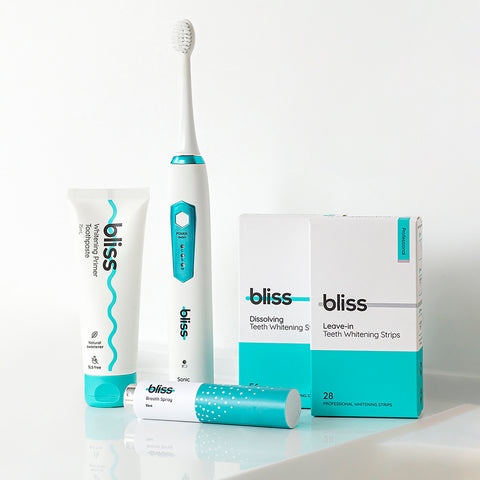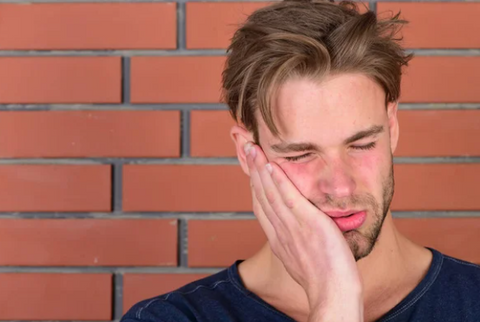The Complete Guide to Teeth Whitening in Australia
Unlock the secrets to a brighter smile with our comprehensive guide on teeth whitening in Australia. From professional services to DIY kits and natural remedies, we cover it all. Make an informed choice today!
Introduction
Australia, known for its sunny beaches and outdoor lifestyle, places great emphasis on a vibrant and healthy appearance, making teeth whitening an increasingly popular choice among Aussies. However, with various methods available, this guide aims to help you navigate the world of teeth whitening so you can make the best decision for your pearly whites.
Why Teeth Whitening is Popular in Australia
Australia—a land renowned for its golden beaches, crystal-clear waters, and an endless summer lifestyle. While the nation may be famous for its stunning landscapes and wildlife, one cannot ignore the emphasis Australians place on looking their best, which often translates to having a radiant smile. Teeth whitening has become an increasingly popular dental procedure in this sun-drenched country, and it's not hard to see why.
The Importance of a Good Smile in Australian Culture
From Sydney's bustling coffee shops to Brisbane's tranquil beaches, a smile serves as a universal greeting that transcends words. In Australian culture, smiling is not just a polite gesture; it's an embodiment of the national character—warm, welcoming, and positive. A bright, healthy smile can make a strong impression, whether you're at a job interview, on a date, or meeting people for the first time. It's an asset that many Aussies are willing to invest in.
The Sunny Australian Lifestyle

Australians are globally known for their outdoor-centric lifestyle. The country's climate lends itself to outdoor activities, including surfing, hiking, and barbeques. With so much time spent outdoors and in social settings, Australians naturally want to look their best. In such scenarios, a dazzling white smile is considered an attractive feature that many aspire to have.
The Social Media Influence
In the age of Instagram, Facebook, and TikTok, aesthetics play a crucial role in our lives more than ever before. High-quality photos featuring radiant smiles are a staple on social media feeds. This trend significantly influences young adults and teenagers, who consider teeth whitening an essential part of their beauty routine.
Ageing and Lifestyle Factors
As people age, the enamel on their teeth tends to wear down, leading to a discoloured appearance. Additionally, lifestyle choices like coffee consumption, smoking, and a love for red wine—quite popular in Australian culture—can lead to staining over time. Teeth whitening offers a convenient solution for people affected by such issues, making it a sought-after cosmetic treatment for a wide age range.
Dental Tourism and Accessibility
Australia has seen a surge in dental tourism in recent years. The availability of quality dental care has made teeth whitening an even more accessible option for Australians. Even local dental clinics often offer competitive prices and convenient appointments, making the process hassle-free and more appealing to the average person.
The Science Behind Teeth Whitening
Understanding how teeth whitening works can help demystify the process and put potential concerns to rest. So, let's break down the scientific aspects of teeth whitening, shall we?
The Anatomy of a Tooth
A tooth consists of an inner layer called dentin and an outer protective layer known as enamel. The enamel layer is porous, meaning it can absorb colours from the foods and drinks we consume. Over time, these absorbed colours can lead to staining and discolouration.
The Role of Whitening Agents
Teeth whitening agents primarily use two types of bleaches: hydrogen peroxide and carbamide peroxide. These bleaches break stains into smaller pieces, dispersing the concentrated colour and thereby making your teeth appear whiter.
The Oxidation Process
When the whitening agent is applied to the teeth, it penetrates the enamel to reach the discoloured molecules within the dentin. Through a chemical reaction known as oxidation, the whitening agent neutralises the discoloured molecules, effectively "bleaching" the tooth.
Sensitivity Issues
It's worth noting that some people may experience tooth sensitivity or gum irritation during or after the whitening process. This sensitivity arises because the bleaching agents may temporarily weaken the structure of the enamel, making it more porous and susceptible to temperature changes. However, these symptoms are generally short-lived and can be managed with proper dental care.
Effectiveness and Longevity
The effectiveness of teeth whitening varies from person to person, based on the degree of staining and the individual's dental health. Typically, professional teeth whitening can last up to three years, depending on one's lifestyle choices. On the other hand, at-home kits generally last for a shorter period but offer the convenience and cost-effectiveness that we will discuss in the subsequent sections.
Professional Teeth Whitening: What to Expect
When it comes to teeth whitening, professional treatment is often considered the gold standard, largely due to the immediate and dramatic results it can offer. However, it's important to weigh the pros and cons before taking the plunge. In this section, we will explore what you can expect when opting for professional teeth whitening.
The Procedure
Most professional teeth whitening procedures involve the application of a high concentration of bleaching gel, which is activated using a specialised light or laser. The treatment usually takes place in a dental office and may last anywhere from 30 minutes to an hour.
Instant Results

One of the most significant advantages of professional teeth whitening is the immediate results. You can expect your teeth to lighten by several shades in a single visit, making it an ideal option for those who have an upcoming special event.
Cost Factor
While effective, professional teeth whitening is undoubtedly more expensive than other methods. In Australia, prices can range from $500 to $1,000 or more, depending on the specific treatment and the dental clinic you choose.
Post-Treatment Sensitivity
It's common for people to experience some tooth sensitivity or gum irritation after undergoing a professional whitening procedure. However, these side effects are usually temporary and subside within a few days.
Longevity and Maintenance
The results of professional teeth whitening can last up to three years. However, this largely depends on your dietary and lifestyle choices. Smokers and people who consume staining substances like coffee and red wine may find that the whiteness fades more quickly.
Final Thoughts
Although professional teeth whitening offers instant and effective results, it's not for everyone. If you're looking for a more budget-friendly and convenient option, at-home teeth whitening kits can be an excellent alternative. We'll explore the numerous benefits of these kits in the next section.
The Cost of Teeth Whitening in Australia
Whitening your teeth can be a financial investment, especially if you opt for professional treatments. In this section, we'll delve into the typical costs associated with different teeth whitening methods in Australia and explore why investing in an at-home kit might be a more budget-friendly option.
Professional Teeth Whitening

As mentioned earlier, professional teeth whitening treatments in Australia can range from $500 to $1,000 or even more. These treatments are generally not covered by dental insurance, which means you'll need to pay out of pocket.
At-Home Teeth Whitening Kits
Comparatively, at-home teeth whitening kits are far more economical. Prices for quality kits can start as low as $50 and rarely exceed $200. These kits often come with enough material for multiple treatments, making the cost per session much less than a professional treatment.
Hidden Costs of Professional Treatments
It's not just the upfront cost that you need to consider when it comes to professional teeth whitening. Many people need follow-up treatments or touch-ups, which can quickly add up over time. Moreover, the possibility of experiencing side effects like tooth sensitivity may require you to invest in special toothpaste or dental care, adding an additional financial burden.
Cost-Effectiveness
From a long-term perspective, at-home teeth whitening kits can be more cost-effective. Not only do these kits offer reasonable pricing, but they also allow for regular maintenance, which can extend the life of your whitening results.
Final Thoughts
While professional treatments may offer quicker results, the financial investment is substantial, especially when compared to the affordable and effective results achievable with at-home teeth whitening kits.
At-Home Teeth Whitening Kits

At-home teeth whitening kits have gained immense popularity in recent years, and for good reason. They offer an economical, convenient, and effective way to brighten your smile without requiring a trip to the dentist. Let's delve into the multiple benefits of using these kits and why they may just outshine professional treatments in many aspects.
Variety to Choose From
Firstly, the market is flooded with a wide range of at-home teeth whitening kits. From strips and gels to LED light devices, there's something for everyone. Whether you're looking for a gentle whitening solution or something more intensive, you can find a kit that suits your needs.
Convenience and Flexibility
One of the biggest advantages of at-home kits is the convenience they offer. Unlike professional treatments that require you to schedule appointments and spend time in a dental chair, at-home kits allow you to whiten your teeth whenever it suits you—be it during a Netflix binge or while reading a book.
Effectiveness
While professional treatments often promise quicker results, at-home kits are catching up in terms of effectiveness. Many users report visible results within just a few days, and consistent use can lead to teeth that are multiple shades lighter.
Control Over Whitening
With an at-home kit, you have complete control over your whitening process. You can choose how often to use it and stop if you're satisfied with the results, unlike professional treatments where the process is more rigid and controlled by a healthcare provider.
Why They Are a Better Option
At-home kits are not only cost-effective but also allow for greater flexibility and control. The burgeoning array of choices means you can select a product specifically tailored to your needs, avoiding the 'one-size-fits-all' approach often seen in professional settings. Moreover, the convenience of doing it yourself, in your own time, is something that professional treatments can't offer.
Natural Teeth Whitening Methods
In the age of organic and natural living, some people may question whether chemical-based teeth whitening methods are the best choice. If you're one of them, you'll be pleased to know that there are a variety of natural teeth whitening alternatives that you can try right at home.
Activated Charcoal
One popular natural remedy for stained teeth is activated charcoal. Simply apply it to your toothbrush and gently scrub your teeth. It binds to surface stains, pulling them away when you rinse. However, be cautious as excessive use can be abrasive to your enamel.
Baking Soda and Lemon Juice
A paste made of baking soda and lemon juice has been a home remedy for ages. The baking soda acts as a mild abrasive that scrubs away surface stains, while the lemon juice contains bleaching properties. However, this method should be used sparingly to protect your enamel.
Oil Pulling
Oil pulling with coconut oil is an age-old remedy that's gained modern traction. It involves swishing coconut oil around in your mouth for about 20 minutes. Not only does it remove bacteria and promote healthy gums, but it also contributes to whiter teeth.
Apple Cider Vinegar
Though apple cider vinegar is effective for removing stubborn stains like those from coffee and nicotine, it should be used carefully. Its acidic nature can erode tooth enamel if used excessively. Always dilute it with water and use sparingly.
Why Natural Methods Can Be Effective
Natural teeth whitening methods can be a compelling alternative for those who are apprehensive about chemical treatments. While these methods may not produce results as quickly as their chemical counterparts, they offer a more holistic approach to teeth whitening.
Safety Measures and Risks
Teeth whitening is generally considered safe. However, like any procedure or product application, there are safety considerations and potential risks involved. It's essential to be informed and take precautions, whether you opt for professional or at-home treatments.
Professional Teeth Whitening Risks

Though carried out under expert supervision, professional teeth whitening is not without its risks:
- Tooth Sensitivity: One of the most common side effects is increased tooth sensitivity post-treatment. This can last for a few days but usually diminishes over time.
- Gum Irritation: The bleaching agent can sometimes come into contact with the gums, causing irritation. However, dentists usually take preventive measures, such as applying a protective gel.
- Over-bleaching: There's a possibility of over-bleaching, which can make teeth appear unnaturally white and sometimes translucent.
- Uneven Whitening: Pre-existing dental restorations such as crowns or veneers won't whiten along with natural teeth, potentially leading to uneven colouring.
Safety Tips
Regardless of the method you choose, here are some general safety tips:
- Always Follow Instructions: Whether it's a professional treatment or a home kit, always follow the provided instructions carefully.
- Limit Frequency: Over-whitening can harm your enamel. It's essential to give your teeth a break between sessions.
- Consultation: Before starting any whitening treatment, it's a good idea to consult with a dentist, especially if you have pre-existing dental conditions.
Frequently Asked Questions
In this section, we aim to address some of the most commonly asked questions about teeth whitening, offering concise yet informative answers for your convenience.
1. How Long Does Teeth Whitening Last?
Short Answer: The effects of teeth whitening can last from 6 months up to 2 years, depending on your diet and oral hygiene.
2. Is Teeth Whitening Permanent?
Short Answer: No, teeth whitening is not permanent. Maintenance is required to keep your teeth looking their whitest.
3. Can Teeth Whitening Damage Enamel?
Short Answer: When done correctly, teeth whitening usually does not damage the enamel. However, overuse or incorrect application can potentially cause harm.
4. Are At-Home Teeth Whitening Kits Effective?
Short Answer: Yes, high-quality at-home teeth whitening kits can be very effective, offering nearly similar results to professional treatments but at a fraction of the cost.
5. Is Professional Teeth Whitening Worth It?
Short Answer: While professional teeth whitening often provides faster and more consistent results, the higher cost and potential for tooth sensitivity make it less appealing for some people.
6. What Foods Should I Avoid After Whitening?
Short Answer: It's best to avoid foods and drinks that are known to stain teeth, such as coffee, red wine, and berries, for at least 48 hours after whitening.
7. Can I Whiten My Teeth if I Have Fillings or Crowns?
Short Answer: Fillings and crowns do not whiten with bleaching agents. Consult your dentist for personalised advice.
Conclusion
Teeth whitening has become a quintessential part of dental care, especially in Australia, where people highly value oral health and aesthetics. The options are myriad—ranging from professional in-office treatments to at-home kits and natural methods. Each approach comes with its own set of advantages and limitations.
In this comprehensive guide, we've taken an in-depth look at why teeth whitening is so popular in Australia, the science behind it, what to expect from professional treatments, and how at-home kits might offer a more convenient and cost-effective alternative.
Remember, the journey to a brighter smile doesn't end after a single treatment. Consistency is key, as are maintenance and precautionary measures. Our section on "Maintenance Tips for Whiter Teeth" offers valuable advice on daily habits and dietary considerations to help you sustain your pearly whites.
Thank you for taking the time to read this article. We hope it has shed some light on the intricate world of teeth whitening and helps you make an informed decision for your dental care.


